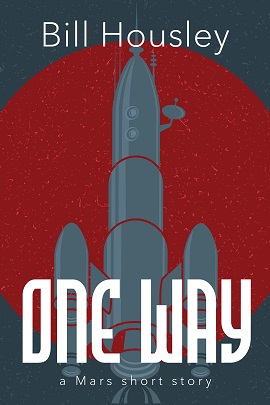The Mandalorian — A Father and Son’s Journey
As a huge fan of everything Starwars, I’ve looked forward to and watched every episode of Disney’s new saga, The Mandalorian. I enjoy Space Westerns in general as well, which more than adds up to keep me interested in the series.
However, with yesterday’s episode they’ve fully clarified the direction of the show and solidified my addiction to this wonderful story.
Warning…if you haven’t seen The Mandalorian series, particularly Season 2 Episode 5, then be aware that my remarks here contain spoilers and you might enjoy it more if you see it for yourself before you read on.
Aside from the great action in this episode, it has been regarded as epic by other StarWars fans as it spends some time with the beloved character Ahsoka Tano from the Clone Wars series, as well as opens the door to the intro of lots of other StarWars characters from other story lines. It also developed the potential for branch-off into new storylines, enough story mix opportunities within The Mandalorian to support a long series, and even potential spinoffs into other character journeys, setting up The Mandalorian as a core storyline for the StarWars Universe.
That, however, is not what I will write about today.

Whatever else has been said by commentators who make a living out of dissecting StarWars stories, The Mandalorian is a journey of a father and son discovering one and other, setting the stage for the building of a powerful team. Fathers have been maligned by popular entertainment, depicted as abusive, drunkards, clowns, and philanderers far more commonly than those archetypes actually occur in our culture and damaging our culture along the way. Parenthood remains an essential element of the progress of our species, and diminishing the role played by either the mother or the father upsets a critical balance. Our survival through the challenges of our time requires that we expect a lot more from fatherhood and view it through the same idealistic eyes as we do motherhood.
Before Episode 5 many figured out that Baby Yoda, often referred to in the story as “The Child”, isn’t actually Yoda and at over fifty years old really isn’t a child either. Yoda’s species lives for hundreds of years, so it fits that they might grow slowly. The story showed us in earlier episodes that he is very stubborn, not so much like a young child in that respect, but more like an adult. There also lurks under the surface a darker edge to his character that peels him off from the Yoda image that all of us StarWars fans have in our minds. However, we learn in Episode 5 (or Episode 13 if you are running the two seasons together in your numbering) that this “baby” Grogu also has some repressed memories, serious and well founded trust issues, and a strong enough attachment to his Mandalorian protector to foreshadow a possible vulnerability to the Dark Side of The Force…at least as the not so wise former Jedi Ahsoka Tano sees things.
Mando has room for improvement as well. He really needs to learn to stop treating Grogu like a child…which we know that he clearly isn’t…similar to what all parents have to learn while raising children through their teen years. The bounty hunter has already shed some of his hatreds and insensitivities and will likely start to even more increasingly see how his violent lifestyle has a potentially dangerous impact on his very dangerous adapted son. Grogu trusts his adopted father, provisionally, but doesn’t yet trust his wisdom enough…typical again of a teen’s relationship with a parent. As this Mandalorian, Din Djarin, becomes a better person, his example can influence Grogu’s path away from the Dark Side of the Force…but only if Grogu sees Din as a role model.
This trust in a father’s wisdom is not for the teen to learn…but for the father to earn.
“You see?” said Din Djarin, casting the stone aside in frustration. “I told you he’s stubborn.”
“Try to connect with him,” said Asoka patiently.

As a father of five I see these lessons vividly. To understand our children, what motivates them, the things they value, is essential to teaching them. Their love for us comes naturally, but our ability to influence their choices through that love increasingly diminishes as they grow toward adulthood. We must grow as they do and this growth also makes us better and forms a sort of symbiosis between parent and child as they learn from one and other about what it takes to become better people.












